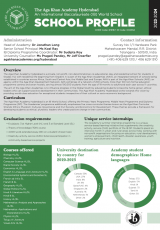Network teacher exchange programme launched
 Three teachers from Hyderabad spent a fortnight in March 2017 at our sister institution in Mombasa as part of an ongoing network knowledge and resource sharing initiative. Grade 1 form tutor Laboni Banerjee, Senior School chemistry faculty Ira Srivastav, and Senior School English teacher S.N Prasad shared their experiences upon their return, which they reported as being ‘enriching’ and ‘rewarding.’
Three teachers from Hyderabad spent a fortnight in March 2017 at our sister institution in Mombasa as part of an ongoing network knowledge and resource sharing initiative. Grade 1 form tutor Laboni Banerjee, Senior School chemistry faculty Ira Srivastav, and Senior School English teacher S.N Prasad shared their experiences upon their return, which they reported as being ‘enriching’ and ‘rewarding.’ 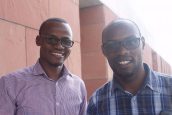 In April, their three counterpart teachers from Mombasa – Alice Ndungu, Johnson Monari and Titus Mayunki – visited Hyderabad for two weeks and were similarly immersed in Academy life here.
In April, their three counterpart teachers from Mombasa – Alice Ndungu, Johnson Monari and Titus Mayunki – visited Hyderabad for two weeks and were similarly immersed in Academy life here.
The teachers interacted with students, shadowed their counterparts and shared curriculum inputs through planning and 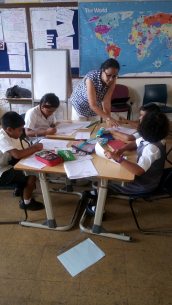
 executing lessons together. Ms. Laboni, who participated in different activities across various grades in the Mombasa Junior School including unit celebrations, summative assessments, and PYP Exhibition action plans, was particularly enthused by the dual language programme and how it functions there. “Students enjoyed spending one day in one section and the next day in another section through the dual language programme, and I found these transitions interesting,” she explained. “I was also able to visit almost every class in the Primary Years Programme and this was very useful. Overall, I felt the exchange programme has given me tremendous exposure to different ways of teaching and learning within the same system. A great experience.”
executing lessons together. Ms. Laboni, who participated in different activities across various grades in the Mombasa Junior School including unit celebrations, summative assessments, and PYP Exhibition action plans, was particularly enthused by the dual language programme and how it functions there. “Students enjoyed spending one day in one section and the next day in another section through the dual language programme, and I found these transitions interesting,” she explained. “I was also able to visit almost every class in the Primary Years Programme and this was very useful. Overall, I felt the exchange programme has given me tremendous exposure to different ways of teaching and learning within the same system. A great experience.”
Mr. Prasad collaborated with many colleagues in the Department of English and Theory of Knowledge, which helped him better understand diverse teaching strategies, selection of books and techniques employed to engage different learner communities. He was especially impacted by the initiatives taken to empower local communities through CAS, outreach and campus tours for the less privileged sections of society. “It was satisfying to learn how the Aga Khan Academy has a place of its own in other countries and cultures. Young learners combine social responsibility with meaningful educational experiences, through for instance putting up cultural programmes to generate income that is shared with economically deprived groups. This is 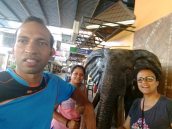 our vision of global citizenship and pluralism in action, and it was very inspiring.”
our vision of global citizenship and pluralism in action, and it was very inspiring.”
Ms. Ira contributed her subject expertise in chemistry to biology students, strengthening their understanding of the interconnectedness between the two subject areas and therefore enhancing horizontal articulation in the curriculum. “I have personally become more confident with my work and have learnt 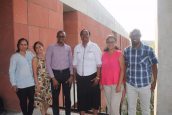 many new strategies for inquiry based learning. The Extended Essay coordinator and I were able to share ideas and frame some ways which can help our students in scoring a better grade in their essays.”
many new strategies for inquiry based learning. The Extended Essay coordinator and I were able to share ideas and frame some ways which can help our students in scoring a better grade in their essays.”
John Franklin, Head of Design and Technology Integration at the Academy in Hyderabad, also recently visited Mombasa to investigate the feasibility of integrating technology into the Academy’s educational forum. “I spent my time speaking with multiple members of staff across all teaching domains on the utility to their teaching of various IT technologies,” he said. “I enjoyed the ambience of the campus and kindred spirit exhibited by the teachers to each other, the vitality of the people outside of the campus and of course the cooling sea breeze!”
To align the admissions process in both Academies, Manager of Admissions and Marketing Imran Bandeali spent a few days in Mombasa with Paul Davis, sharing best practices and observing their dynamic assessment techniques which is the most unique aspect of the Academies’ talent identification process. “With a network of Academies being run in different countries, there are bound to be differences in the way we do things. We realised, however, that there are various elements that can be standardised and aligned with our mission, and this is what we are working towards.”



